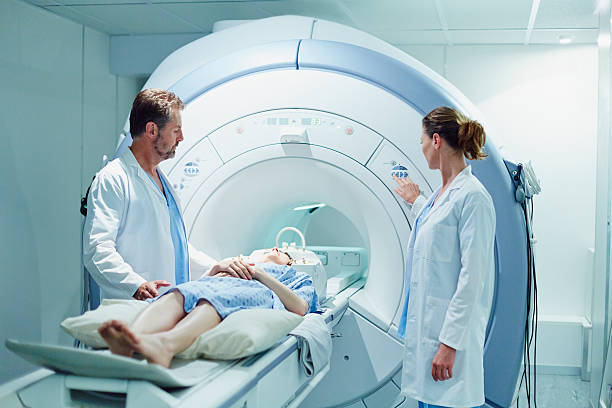A diagnosis of a disease or illness leads to surgery or treatment, right? It is very important for you to understand that this is not the end of the world; rather, it is merely meant to get you ready for a longer life span, which may entirely cure you of the illness or disease or at least lessen the severity of both your pain and illness.
I want you to know that the first step in your recovery journey before surgery or treatment is to identify or diagnose the illness. This is the first half of the recovery process. We all aspire to live longer, and it seems reasonable that we would all like to get our pain under control or be healed of our illnesses.
Nevertheless, it is crucial to keep in mind that the road to recovery is not always simple. The identification and diagnosis of an illness are the first key steps in recovery, but they are only the beginning. Following that, you may require surgery or other difficult or unpleasant processes.
Do not give up; simply recognizing the problem and seeking help is a step toward fifty percent recuperation. With time, patience, and the assistance of loved ones and medical specialists, you may overcome this challenge and emerge stronger on the positive side.
It will not be easy, but when you can look back on this experience with pride in your persistence and endurance, it will have been worthwhile to continue forging ahead in order to succeed.
SURGERY OR TREATMENT: HOW TO BE PREPARED

However, before beginning the recovery process, your psychological response to any illness has both beneficial and negative effects on your bodily system. It is true that, depending on the outcome of the results, your morale declines when the condition is diagnosed.
The common consensus is that when a patient learns they have a sickness, their faith and confidence are challenged. Although this is intended to be a time of optimistic hope and fresh objectives, some patients initially fear that death is already at the door.
This post is intended to inspire optimism in the millions of people reading it that this time is indeed for introspection and regeneration. Before surgery or treatment start, there are a few procedures that must be followed:
Diagnosis or Medical Result
This is a big topic that we will just touch on briefly. This is the process of determining the presence or absence of a disease, ailment, or damage based on its signs and symptoms. This involves a physical examination as well as testing such as blood tests, imaging tests, and biopsies, which may be utilized to aid in the diagnosis.
Diagnosis protects the infected patient from developing long-term problems. It is also the most crucial process because it is where the regimen for patient treatment begins in surgery or treatment. My recommendation is to constantly double-check all tests and biopsies. Re-examination might also be beneficial for additional confirmation.
Depending on the type of infection, the patient may experience a variety of complications, but some of the more typical ones are organ damage, inflammation, and fever. Therefore, it is essential to provide accurate and trustworthy test results to prevent incorrect diagnoses and treatments that might aggravate the patient’s condition.

Doctor’s Advice And Recommendations
The doctor’s opinions and guidance should be carefully taken into account because they play a significant role in the recovery process. Also, it is crucial to adapt yourself to upcoming medical surgery or treatments. Your doctor should be your closest confidant and ally at this time, since following their advice will help ensure the success of your surgery or treatment.
Furthermore, avoid any foods that are restricted, and stop taking any medications that can complicate the operation. Follow all guidelines and instructions strictly. At this point, it is essential to follow the rules and guidelines that apply to the surgery or treatment. Ensure to follow your doctor’s postoperative instructions if you want to have a quick and easy recovery.
To guarantee a successful outcome, it is critical to keep in mind a few factors related to the surgery or treatment. The most important thing to remember is to tell your doctor about any allergies or medical issues before the procedure. This will give them time to organize and modify the surgery or treatment plan as needed.
Second, in order to ensure a quick recovery, it’s crucial to follow the recommendations of your physician’s postoperative advice. These recommendations could involve taking medicine, refraining from particular behaviors or foods, and attending follow-up consultations. It is crucial to monitor any physical changes you experience and to let your doctor know about them right away.
Specialist Opinion
The title of this section should be “Second opinion,” but since there are many fields and sub-branches of medicine due to the complexity of human anatomy, “specialist opinion” is more precise. Any doctor or hospital should not be completely trusted because mistakes will inevitably be made by humans.
This is why getting a second opinion is important; ideally, the best opinion at this point is one from a specialist in the relevant field of the disease. You can choose the best recommendation after getting a second opinion. It is best to err on the side of caution when it comes to our health.
Despite doing their best to offer correct diagnoses and treatment plans, medical experts and doctors are still unpredictable human beings who occasionally make mistakes. Consequently, it is crucial to have a second opinion because of the complexity of surgery or treatment.
It enables you to see your disease from a new angle and may reveal alternative therapy choices that may have gone unnoticed in the past. It is advisable to speak with an expert on the subject of your illness or condition while getting a second opinion.
They have treated patients with similar problems with the most up-to-date expertise and experience. A second opinion will help you decide what course of action is best for your health, which will allow you to proceed with confidence. Always seek out the best advice available since your health is too essential to be left up to chance.
Personal Research and Counselling
This crucial stage is critical because it gives you the strength and courage you need to face the upcoming challenge. If you accept my advice on this based on my personal experience, you can overcome fear and doubt. Gone are the days when one would undergo surgery or treatment without knowing anything about it.
In this modern era, we now have access to books, journals, lectures, images, audiotapes, YouTube videos, and counseling that educate us on diseases and ailments. The internet is flooded with videos illustrating how medical surgery or treatments were performed in the past. This, in fact, enhanced my confidence before my surgery.
It is your choice to be a complete novice to your sickness if you wish. You must be well informed about it and face it courageously. It is very important to understand the surgery or treatments you are about to undergo because it will help you feel less anxious.
Undergoing surgery or treatment is all about awareness, so it is necessary to learn extensively about it. You should also do research on the procedures. Making better health-related decisions may be influenced by your knowledge of the advantages and adverse effects of each procedure.
To get additional information and support that will make you feel better, speak with your physician. They will be able to provide you with more details. This includes being informed about the medications you are taking, any potential adverse effects, and any lifestyle changes that might be necessary for good health.
Do not forget that being informed is the key to receiving excellent surgical or treatment results; therefore, do not feel embarrassed to ask for advice from reliable sources.

Personal Decision
Your decision is very crucial to the success of the surgery or treatment. This is where you put all of the aforementioned points into consideration and come to a conclusion on where your firm decision lies, whether to proceed or not. If you want to proceed, you have made a good decision that will have a positive influence on your life because your hope and faith are with God, your good self, and the doctors.
At this junction, you have done your best, and the level of your fear must have been reduced to a very minimum level. Just be positive and hope for the best. Any decision here is final; wait for D-day and keep praying to God. As the big day approaches, remember that you have done your best and you have God on your side.
You have demonstrated incredible bravery and resilience during this journey to surgery or treatment, and it is crucial that you keep a good perspective. While anxiety may persist, trust in God’s plan and understand that any decision taken at this moment is final. Keep praying for strength and guidance, as well as for the doctors who will make the ultimate decision.
It is natural to feel nervous, but try to keep your concentration on the present situation and your faith firm. You’ve gone this far, and with God’s aid, you can overcome any challenge. Maintain an optimistic attitude and faith in the power of prayer.
Post-Surgery Follow-Up and Treatments
After the surgery, resting in the recovery room is crucial in order to be monitored for some hours by trained nurses and anesthesia professionals. Physicians and nurses will attend to you, answer your questions, and provide you with detailed instructions.
Some instructions will be highlighted to you, and they must be strictly followed and carefully adhered to. Engaging in heavy and strenuous activities like driving or operating machinery after your surgery might be dangerous for you until your doctor has instructed you otherwise to resume regular activity.

In surgery or treatment, always talk to your doctor about your recovery and any new symptoms you notice in your body. All questions should be directed to him, especially when you resume work. Please contact your doctor if you need immediate treatment for a problem that has arisen as a result of your surgery or treatment.
To ensure a smooth recovery, it is of the utmost importance to follow your doctor’s recommendations and attend all follow-up appointments. Your doctor may also suggest physiotherapy or other treatments to help with your recovery.
CONCLUSION
There are many hospitals and medical facilities around the world that are either specialized in a single medical field or in broad fields where, with the assistance of knowledgeable physicians and medical professionals, you can conquer any difficulty that comes your way.
It is crucial to keep in mind that while it won’t be simple, perseverance and endurance will pay off. You can become stronger than ever by keeping a positive attitude and your goals in mind. If you are going through a tough diagnosis or experiencing a chronic disease, know that there are resources out there to support you.
Utilize support groups, counseling, and other tools to assist you in overcoming the emotional effects of the sickness. Keep in mind that every step you take is a success and that you have the opportunity to achieve those objectives. Any challenge may be overcome, making you stronger, if you are determined and diligent.
yes it is true